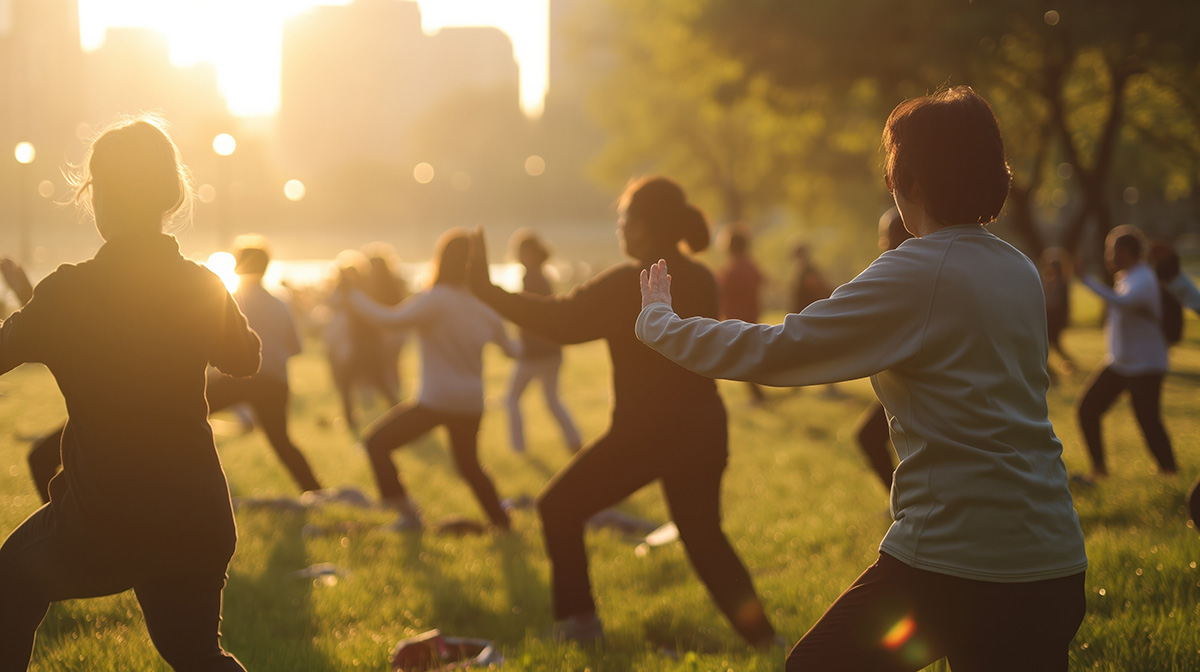When was the last time you were “stressed”? Maybe just now that we asked you that question? Probably at least within the last 2-4 hours, right? Stress has become an all-too-familiar companion. The demands of work, family, and modern life can leave us feeling depleted and overwhelmed. At Tao to Wellness, we turn to the wisdom of Traditional Chinese Medicine (TCM) to find calm and healing in the midst of life’s chaos. Through centuries-old practices, we can restore balance to both mind and body, allowing us to approach each day with renewed energy and clarity.
A Brief History of Stress in the Modern World
The concept of stress, as we understand it today, is relatively new. The word “stress” entered the American vernacular in the 20th century, popularized by Hungarian-Canadian endocrinologist Hans Selye in the 1930s. He defined stress as the body’s non-specific response to any demand for change. Before that, the term was primarily used in physics to describe pressure on materials. Selye’s work introduced the idea that prolonged stress could have serious physical and emotional consequences, shaping the way we view mental health today.
In Traditional Chinese Medicine, however, the idea of stress has existed for thousands of years. Instead of using a single term, ancient practitioners described the experience of stress as an imbalance in Qi (vital energy) and disharmony in the body’s organs, particularly the Liver, Heart, and Spleen. When Qi becomes stagnant or depleted, it leads to symptoms like irritability, fatigue, headaches, digestive issues, and even insomnia. The wisdom of TCM offers gentle and effective ways to restore equilibrium, bringing peace back into our lives.
Ways to Mentally Refresh After a Stressful Day
There is a really great article at Zen Habits, that lists some wonderful ways to destress and mentally refresh after a stressful day. Here are ten ways that you can destress using TCM, coupled with modern methods:

Qi Gong and Tai Chi: Moving Meditation – Qi Gong and Tai Chi are gentle yet powerful practices that combine breath, movement, and mindfulness to circulate Qi and release tension. These ancient exercises allow the body to let go of stress while cultivating inner strength and resilience.
Acupressure for Emotional Balance – Acupressure can feel so good after a challenging day. In fact, it’s been used to stave off panic attacks, headache and tension relief, and even labor pains (yes, you read that right, childbirth pain – we have personal experience with this!). Applying gentle pressure to specific acupoints can ease tension and restore emotional balance. Liver 3 (Taichong) on the foot helps to release pent-up frustration, while Pericardium 6 (Neiguan) on the wrist can calm anxiety and promote deep relaxation.
Herbal Support for the Nervous System – TCM herbs have long been used to soothe the mind and nourish the nervous system. Reishi mushroom (Lingzhi) is known as the “mushroom of immortality” and has adaptogenic properties that help the body cope with stress. Chrysanthemum tea is another gentle remedy that calms an overactive mind while supporting eye health.
Gua Sha and Cupping Therapy – These traditional bodywork techniques release stagnation, improve circulation, and help the body process stress. Gua Sha, a scraping technique, is especially useful for releasing tension in the neck and shoulders, where many of us hold stress. Cupping, which creates suction on the skin, draws out toxins and promotes deep relaxation.
Tea Ceremony for Mindfulness – Tea drinking is a sacred ritual in Chinese culture, offering a moment of pause in a busy day. Green tea and oolong tea both contain L-theanine, an amino acid known to promote relaxation. Sitting quietly with a warm cup of tea invites mindfulness and brings a sense of serenity.
Breathwork and Meditation – TCM teaches that the breath is a bridge between body and mind. Deep belly breathing (Diaphragmatic breathing) and the 4-7-8 breathing technique help to activate the parasympathetic nervous system, shifting us from a state of stress to deep calm.
Healing Foods to Soothe the Nervous System – Nourishing the body with the right foods is an essential part of healing from stress. Warm, cooked foods like congee (rice porridge) are easy on digestion and offer gentle support to the Spleen, which governs energy production in TCM. Goji berries and walnuts help to replenish Qi and restore balance to an overworked system.

Connecting with Nature – Spending time outdoors, walking barefoot on the earth, or simply gazing at the sky can regulate the nervous system and restore inner harmony. In TCM, this practice aligns with the Five Elements theory, which teaches that human health is deeply connected to nature.
Journaling and Emotional Release – Emotions are stored in the body, and writing them down can be a powerful way to release pent-up stress. According to TCM, the Liver is the organ most affected by emotional stagnation, so expressing thoughts through journaling can promote the free flow of Qi.
Digital Detox and Screen-Free Evenings – Too much screen time, especially in the evening, can disrupt sleep and overstimulate the nervous system. Powering down devices at least an hour before bed and replacing screen time with a calming activity, like reading or gentle stretching, allows the body to transition into a state of rest.
Other Fun Ways to Destress
Sometimes, the best stress relief comes from simply letting loose and engaging in joyful activities. According to Good Housekeeping, laughter, movement, and intimacy can all play important roles in reducing stress
Dance It Out: Physical movement releases endorphins, the body’s natural stress-relievers. Whether it’s a structured dance class or simply putting on your favorite song and moving freely, dancing can lift your mood and release tension.
Laugh More: Laughter is a powerful stress reliever that lowers cortisol levels and increases relaxation. Watching a comedy show, listening to a funny podcast, or sharing jokes with loved ones can instantly shift your mood.
Engage in Intimacy and Sex: Physical touch, whether through a loving embrace or intimate connection, releases oxytocin—the “love hormone”—which helps lower stress levels and promote a sense of well-being.

Pet an Animal: Spending time with a pet can significantly reduce stress and anxiety. Research from the National Institutes of Health (NIH) has shown that interacting with animals can lower cortisol levels and boost mood (NIH). The act of stroking a pet can be meditative, grounding, and deeply comforting.
Creative Expression: Engaging in activities like painting, singing, drawing, playing online or board games with your kids or playing an instrument provides an emotional release and allows the mind to relax.
We hope that you’ll resonate with one of these ways to destress. Can you think of other creative ways? The list is very long indeed!
Honoring the Wisdom of Traditional Chinese Medicine
While modern life often pulls us in many directions, the ancient teachings of Traditional Chinese Medicine remind us to return to balance. Stress is not just an emotional state; it is a sign that our Qi is out of harmony. By embracing these time-honored practices, we can reclaim our well-being and cultivate a deep sense of peace.
At Tao to Wellness, we believe that healing begins with gentle, mindful choices. Whether it’s through herbal medicine, acupuncture, or simply taking a few deep breaths, the path to finding calm and healing is always available to us. We invite you to integrate these practices into your daily life and discover the profound wisdom of TCM in nurturing your mind, body, and spirit.

